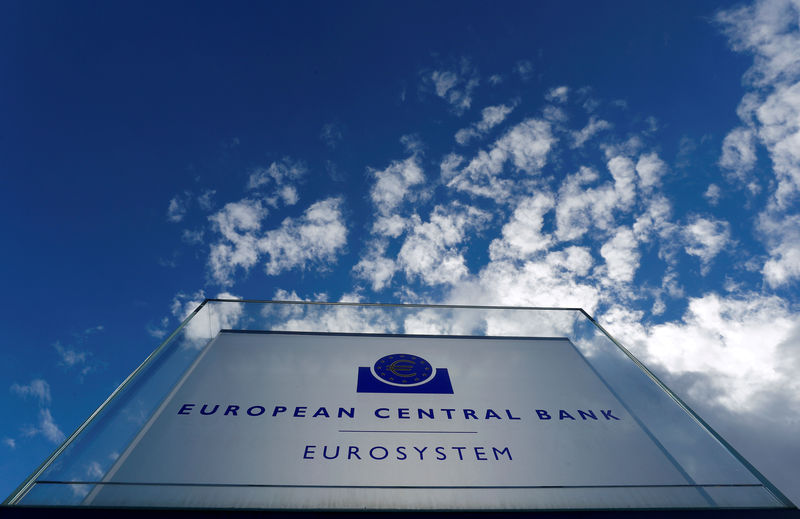FRANKFURT (Reuters) - Euro zone banks face growing pressure on earnings from a maturing business cycle, and their projections for lukewarm earnings in the coming years may still be too optimistic, the European Central Bank said on Monday.
Struggling with high costs and melting net income growth, fewer than half of the currency bloc's big banks earn their cost of equity - a potential obstacle to any economic recovery as Europe is traditionally based on bank-led finance.
Banks have projected a dip in their return on equity both this year and next before a slight recovery in 2021, but the ECB said in a regular risk assessment that conditions have since deteriorated.
"There are significant downside risks associated with such a scenario: the macro-financial environment has worsened in the period since these projections were prepared, and banks may have not fully incorporated the effects of competition into their estimates," the ECB's bank supervision arm said.
It noted that the economic cycle is maturing and the global outlook has worsened, due in part to increased global protectionism, which is already resulting in a high inflow of new non-performing loans.
The ECB cut interest rates last month to new record lows, and its supervisory arm noted that low rates for even longer, along with intense competition, will further weigh on banks' ability to generate income.
It also warned that the sector was exposed to sudden changes in the risk assessment of some governments as debt-sustainability concerns remain "pronounced", a problem as banks tend to be highly exposed to their sovereigns, creating a so-called doom loop between the lender and its host country.
Outlining its priorities for 2020, the supervisor said balance sheet repairs were key, with a focus on working down assets that have turned sour, more adequate risk models, and an enhanced focus on trading and market risks.

"Inflows of new non-performing loans still appear to be on the high side. Although the most recent NPL strategies have generally been very ambitious, the maturing economic cycle in the euro area might limit the banks’ progress in implementing these strategies," the ECB added.